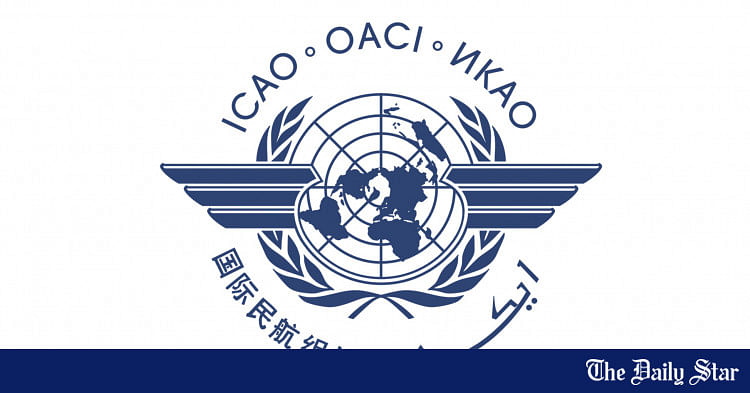The inspection and monitoring of flight operations of carriers, especially Biman, is hindered by “government involvement”, the International Civil Aviation Organisation (ICAO) has found during a recent inspection.
The global civil aviation watchdog provided training to the Civil Aviation Authority of Bangladesh (CAAB) on March 10-21 as part of its Southeast Asia-specific programme that focuses on developing airworthiness of these countries.
The training aimed to help CAAB is in preparation to an audit by ICAO scheduled for later this year.
The ICAO audit assesses the aviation safety and aviation security oversight capacities of its member states, and rates them according to how compliant they are. Bangladesh’s last audit was carried out in 2017.
Inspecting the civil aviation department, the training team found that “oversight of operators, especially Biman, is hindered by government involvement and various exemptions”.
“While there are gaps, the first step is to recognise them, accept them, and then change them for the better,” Captain Gabriele Ascenzo, an airlines safety expert from ICAO, said in a letter to the CAAB chairman.
ICAO flagged an engine-exceedance incident on a Biman flight on February 1, 2022, as an “operational anomaly of Biman and a safety concern”. In that incident, a pilot put the aircraft engines on emergency mode and burned those.
Flight BG601 was flying from Dhaka to Sylhet with 71 passengers, and the pilot in command was Capt Ali Rubyat Chowdhury.
“Flight data capture did not appear post flight. It may have been tampered with and/or erased,” noted ICAO.
“Repairing the engines cost Biman Tk 16.5 crore since the damage of the engines was solely the pilots’ fault.
“The above indicates a systemic failure of the management, flight operations, flight safety and the training department,” added ICAO.
Though the ICAO pointed out that the engine exceedance event was the pilots’ fault and the flight data recorder (FDR) data was either erased or tampered with, the civil aviation ministry submitted a report to the High Court on March 12 denying that there was a cover-up.
The High Court in August last year had ordered the ministry to launch an investigation into the anomalies in Biman.
The ministry report, prepared on orders from the court, claimed that the pilots did not realise that the plane’s engines had gone into emergency mode. This was in a direct contradiction to the ICAO’s findings.
The aviation watchdog also flagged what it termed anomalies in recruitment. “The current shortage of pilots stems from the non-transparent recruitment policy and the present expansion to new destinations with a deficit of 60 flight crew members as per the rostering process,” it said.
The ICAO mentioned the recruitment of 14 pilots in 2022 as “wasted resources”, where the chief of the training department was given the responsibility to recruit pilots despite his wife being a candidate.
It quoted the chief of planning and scheduling, Capt Ishtiaque Hossain, as saying, “We could not respect the flight duty limitations as Biman started four new destinations with the same number of pilots.”
The ICAO found that there are insufficient qualified flight operation inspectors. CAAB has a total of seven such inspectors.
There is also a lack of monitoring and oversight of designated examiners, it added.
Also, the ICAO inspection cited the recruitment anomalies in their report, but Biman Bangladesh Airlines submitted a report to the HC on May 8 claiming that they had done everything by the book.
The ICAO audit will be carried out in September. Bangladesh had shown considerable progress in the last ICAO audit of 2017.
“We hope the hard work undertaken by the [ICAO] inspectorate is appreciated at the highest levels of the government. This should be recognised as the means to bring the aviation industry in Bangladesh back to the previous high standards […],” said Captain Gabriele in the ICAO report.


 For all latest news, follow The Daily Star’s Google News channel.
For all latest news, follow The Daily Star’s Google News channel.